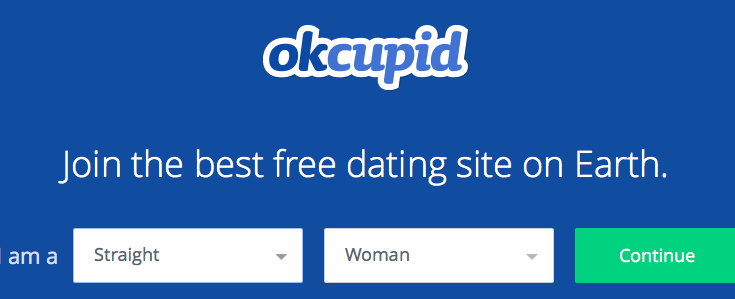OK Stupid: Checking for Plagiarism to Stay Safe Dating Online
 Last year, we talked about how copyright and plagiarism impact online dating including some tips on how to keep your content safe from spammers and plagiarists who might wish to misuse your images, text and other material.
Last year, we talked about how copyright and plagiarism impact online dating including some tips on how to keep your content safe from spammers and plagiarists who might wish to misuse your images, text and other material.
We also looked at some fairly alarming statistics, including how, even on legitimate sites, nearly one out of every ten profiles are fake, with many of the fake profiles being uploaded by scammers hoping to trick unsuspecting users into opening their wallets.
To that end, the problem hasn’t gotten any better over the past year. Not only has the Ashley Madison hack happened, leaking millions of users personal information online, but that hack revealed that, of the 5.5 million claimed female users, only 12,000 were likely real.
However, with one out of three marriages getting their start online, don’t expect online dating to disappear any time soon. Instead, it’s important that, when dating online, you are safe in every way possible.
Fortunately though, there are a lot of things you can do to protect yourself. In addition to the common sense safety tips for meeting with people in person, you can also take steps online to ensure your safety and happiness when dating online.
One of the easiest is making sure the content posted by others you meet is original.
Checking for Plagiarism in Online Dating
 Checking for plagiarism on a dating profile might seem odd considering that well-intended humans copy and paste content into their profiles all the time, but the threat of fake profiles online is very real and not likely to go away any time soon.
Checking for plagiarism on a dating profile might seem odd considering that well-intended humans copy and paste content into their profiles all the time, but the threat of fake profiles online is very real and not likely to go away any time soon.
However, these fake profiles mostly have one thing in common: They use content lifted from other sources.
Basically, scammers and others who create fake profiles need to create hundreds or even thousands of completed profiles quickly in order to server their purpose. Whether that is to inflate the numbers of people on a site or simply to scam people who message them, there’s a need for a large number of profiles to ensure as many real people as possible.
As such, if you suspect that a profile is fake or just want to check and make sure the person messaging you is authentic, one of the easiest steps is to check and see if the content is original.
On that front, there are three things one needs to do:
- Sanity Check: With any dating profile you run across, a “sanity check” should be the first thing. Do the photos look real? Does the text read like it’s authentic? Is there too much or too little information when compared to other profiles? If something seems amiss, there likely is and it’s either an account you want to contact with caution or avoid altogether.
- Check the Text: You can trivially take the text of a profile and run it through CopyScape, Plagium or another plagiarism checker. In each case you’ll likely want to spend the few cents to get more accurate results. If you don’t wish to pay, taking short passages from the text and searching for them in Google with quotes can also work. For more information, check out the “How to Find Plagiarism” page here.
- Check the Images: Finally, using either Google Image Search or Tineye, check any photos in the profile to see if they appear elsewhere. For example, if the profile picture turns out to be a stock photo or widely used elsewhere online, there’s good reason to be suspicious.
To be clear, the purpose of this isn’t to spot any and all plagiarism. It’s important to take a long look at any results that you find and put it into context. A dating profile is not an academic paper, it’s not a work of journalism and it isn’t a novel either. It’s a social media profile.
The fact a profile has some matching text or images found elsewhere is not, by itself, suspicious. However, if the entire content of the profile appears on a dozen other sites or the images all appear to be stock photos, obviously there is a reason to worry.
Likewise, though it would be nice if a person attributed the poem they put on their dating profile (and you still probably don’t want to date someone who would lie about that), it’s still not as disconcerting as someone who copied key portions of his life from other sites.
The goal of this isn’t to play “gotcha” with a suspected plagiarist, but rather, to learn what came from where and if there’s reason to be suspicious, nothing more.
Bottom Line
As online dating becomes more and more popular, it’s going to attract an increasing number of people who seek to take advantage of it. Unfortunately, when it comes to love, people have a tendency of putting their intuitions and common sense aside and are often governed more by their emotions.
Plagiarism detection is not going to catch every fake profile. There are plenty with original content and images that would slip through this test. Still, it’s an extra line of defense against the people who seek to game online dating to their own ends, including those humans who are less-than-honest in their profiles.
Should you check every profile you look at? Probably not. But it’s likely worth following the steps above before sending a message or hitting reply, just so you know who you are talking to.
Want to Reuse or Republish this Content?
If you want to feature this article in your site, classroom or elsewhere, just let us know! We usually grant permission within 24 hours.
